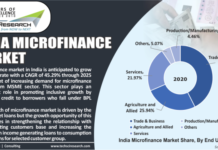By Mandeep Lamba, President – South Asia, HVS ANAROCK
The best matches may be made in heaven, but the most memorable weddings happen in picturesque locales back on terra firma. Destination weddings are redefining India’s wedding culture (already famous for opulence, customs and traditions spread over several days).
While the trend of destination weddings is not exactly an Indian concept, its percolation into the globe-trotting Indian millennial milieu was inevitable. Wedding halls are passé – perfect, fairy-tale settings for one of life’s most momentous events are increasingly ‘in’.
It has been reported that the Indian destination wedding industry is expected to reach a market size of INR 45,000 Cr by 2020, with a projected annual growth rate of 25-30%. Factors such as the rise of the middle class, a booming economy and celebrity endorsements – amply stirred by social media-induced aspiration – have contributed to this growth.
Destination weddings have also given a major shot in the arm to wedding planners, banquet organisers and wedding apparel designers – who, in any case, had little to complain about in a country where all stops are pulled out for weddings.
However, the biggest beneficiary of the growing destination weddings trend is the hospitality sector.
The Big, Fat Indian Wedding
In India, people are often willing to spend almost a third of their life savings on weddings. Fed on a steady social and even mainstream media diet of opulent celebrity weddings, Indian millennials are more than eager to invest in ‘curated weddings’ and will choose the most exotic locales they can afford to celebrate their big day.
The preferred locations for personalized, theme-based destination weddings in India are Rajasthan, Goa, Kerala and Uttarakhand. With its forts and palaces, Rajasthan provides the perfect setting for a ‘royal’ wedding, while the Goa and Kerala provide the ideal palette for beach weddings. Many nature lovers choose resorts in Uttarakhand for their spectacular mountain backdrops.
In fact, these locations are also considered exotic options for soon-to-be-wed couples from other countries. This is not surprising since apart from the locations themselves, India – when compared to some other countries – also offers relatively affordable air travel and accommodation options.
| Popular Beach Destinations | Avg. Daily Rate (ADR) for Luxury Properties in INR |
| Goa | 16,000 – 19,000 |
| Kovalam | 10,000 – 12,000 |
| Kochi | 9,000 – 11,000 |
| Popular Royal Destinations | Avg. Daily Rate (ADR) for Luxury Properties in INR |
| Jaipur | 34,000 – 39000 |
| Udaipur | 27,000 – 37,000 |
| Jodhpur | 38,000 – 42,000 |
| Popular Mountain Destinations | Avg. Daily Rate (ADR) for Luxury Properties in INR |
| Mussoorie | 12000 – 18000 |
Source: ANAROCK Research
Data ‘Accommodates’ Future Growth
The rising appetite for destination weddings is unquestionably a boon for the Indian hospitality industry, which has been on an upswing over the last few years. As per HVS ANAROCK data, 2018 saw the Indian hotel industry witness a country-wide RevPAR growth of 9.6% over 2017, to arrive at an absolute RevPAR of 3,927. In 2019, the RevPAR is expected to see 9.5% growth, with demand finally outpacing supply.
Data also indicates that the period between 2014 and 2018 witnessed an upsurge in transaction volumes of approx. INR 64.4 bn – the previous peak being in 2015 at about INR 19.9 bn.
Growth in the hospitality sector was augmented with the introduction of subsidies and schemes to push hotel construction and tourism. However, the last few years have also been unpredictable due to an oversupply of hotel rooms and competition from new brands and shared economy models.
In such a mixed market scenario, wedding tourism and destination weddings can be a significant game-changer for the Indian hospitality industry, if promoted intelligently. Already, we are seeing the positive impact of some of India’s most globally ‘representative’ locations promoting themselves via worldwide promotions.
Jaipur continues to witness growth in room supply, with approx. 1,282 keys added in 2018 alone. Rajasthan is, of course, the most popular destination in India for hosting royal-themed destination weddings.
Goa has certainly been no laggard either, with city-level data by HVS ANAROCK indicating that India’s beach state saw the largest signing of keys in 2018 at 2,209 keys – evenoutpacing Bengaluru (though with a very small margin of 192 keys). The strong increase in supply will be a strong boost for Goa, one of the most sought-after destination wedding hotspots in India.
Customization is ‘Key’
Personalization is the key to the future success of destination weddings in India. Apart from themes, there is a steady demand for newer locations from to-be couples also scouting for waterfront properties with helipads and pillar-less ballrooms, while some gravitate towards ancient forts that provide an even bigger historic touch to the ‘royal wedding’ ethos. Hotel chains have had to up their game to customise spaces (and food) to create unique experiences for millennials.
While Rajasthan, Goa and Kerala are the top three Indian wedding destinations, off-beat locations like Mahabalipuram and the Andaman Islands are also finding favour.Mussoorie and Simla offer a serene, hilly and even Colonial Era backdrop to destination weddings. Of course, the primary criterion for all destination weddings is a perfect setting for memorable pictures and drone footage that can be shared on social media.
An Indispensable Growth Driver
Unlike the other real estate segments, the growth prospects for the hotel real estate industry in 2019 and 2020 does not depend only on a stable Government after elections. While strong economic growth is obviously de rigueur for overall growth, the hospitality industry needs to respond to a much more diverse set of demand drivers than residential, commercial and retail real estate.
The growing demand for destination weddings will play a significant role in transforming the economy of host states, and in creating new avenues of growth for the overall hospitality sector.
Corporate Comm India(CCI Newswire)































